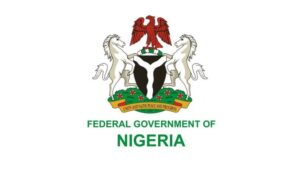BREAKING: Nigerian Students Abroad Face Scholarship Changes as Tinubu Adjusts Allowances

In a surprising move, President Bola Tinubu announced a reduction in allowances for Nigerian students for scholarship programs abroad. This decision has sparked discussions across the country and among Nigerian students overseas. Let’s dive into the details and reasons behind this significant change.
What’s Happening?
President Tinubu’s administration has decided to cut the allowances provided to Nigerian students studying abroad on government scholarships. This adjustment affects students across various countries and academic programs.
Why the Change?
According to the government, the primary reason for this reduction is:
- Economic Challenges: Nigeria is currently facing economic pressures, and the government is looking to optimize spending across various sectors.
- Reallocation of Resources: The administration aims to redirect funds to other critical areas of national development.
- Encouraging Local Education: There’s a push to strengthen Nigeria’s domestic education system and encourage more students to study within the country.
Impact on Students
This decision will undoubtedly affect Nigerian students abroad:
- Reduced Financial Support: Students may need to find alternative sources of funding or adjust their living expenses.
- Potential Stress: The change could cause stress and uncertainty for students already dealing with the challenges of studying in a foreign country.
- Possible Return of Some Students: Some students might consider returning to Nigeria to complete their studies.
The Federal Scholarship Board, under the Federal Ministry of Education, supervises the scholarship. A memo from the director of the Federal Scholarship Board announced the reduction in allowances. The monthly allowance has been reduced from $500 to $220, and the graduation allowance from $2500 to $2000. The postgraduate (PG) research allowance has also been reduced from $1,000 to $500, and the total payment per student has been reduced from $5,650 to $4,370.
What’s Next?
While the news has been met with mixed reactions, it’s important to note that:
- The government has promised to review the decision periodically.
- Support systems for affected students are being considered.
- Dialogue between student representatives and the government is ongoing.
For Nigerian students abroad and those planning to study overseas, staying informed about these changes is crucial. Keep an eye on official government announcements and reach out to your scholarship providers for the most up-to-date information.
What are your thoughts on this development? How do you think it will impact Nigeria’s education landscape? Share your views in the comments below!
Stay tuned for more updates on this evolving story.






